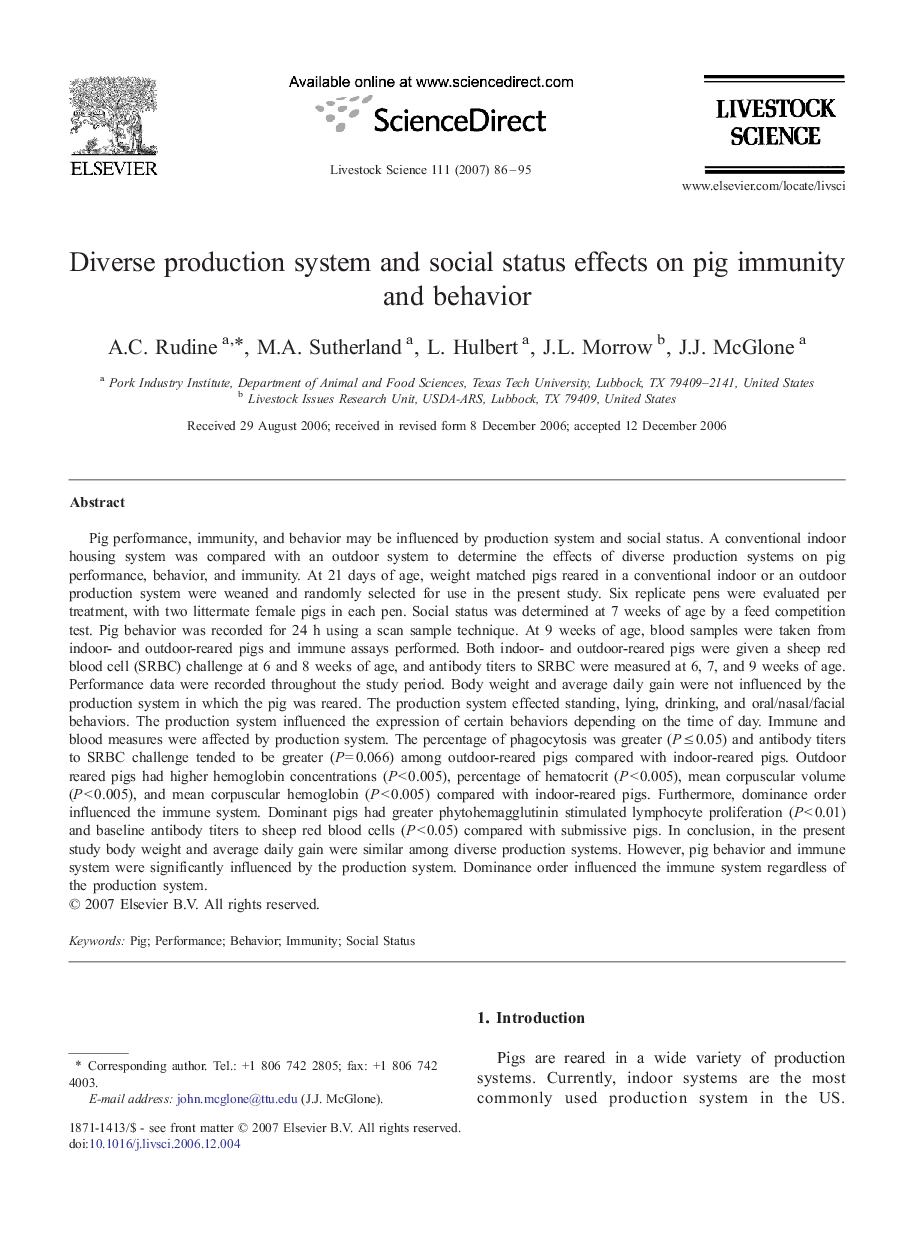| کد مقاله | کد نشریه | سال انتشار | مقاله انگلیسی | نسخه تمام متن |
|---|---|---|---|---|
| 2448646 | 1554022 | 2007 | 10 صفحه PDF | دانلود رایگان |

Pig performance, immunity, and behavior may be influenced by production system and social status. A conventional indoor housing system was compared with an outdoor system to determine the effects of diverse production systems on pig performance, behavior, and immunity. At 21 days of age, weight matched pigs reared in a conventional indoor or an outdoor production system were weaned and randomly selected for use in the present study. Six replicate pens were evaluated per treatment, with two littermate female pigs in each pen. Social status was determined at 7 weeks of age by a feed competition test. Pig behavior was recorded for 24 h using a scan sample technique. At 9 weeks of age, blood samples were taken from indoor- and outdoor-reared pigs and immune assays performed. Both indoor- and outdoor-reared pigs were given a sheep red blood cell (SRBC) challenge at 6 and 8 weeks of age, and antibody titers to SRBC were measured at 6, 7, and 9 weeks of age. Performance data were recorded throughout the study period. Body weight and average daily gain were not influenced by the production system in which the pig was reared. The production system effected standing, lying, drinking, and oral/nasal/facial behaviors. The production system influenced the expression of certain behaviors depending on the time of day. Immune and blood measures were affected by production system. The percentage of phagocytosis was greater (P ≤ 0.05) and antibody titers to SRBC challenge tended to be greater (P = 0.066) among outdoor-reared pigs compared with indoor-reared pigs. Outdoor reared pigs had higher hemoglobin concentrations (P < 0.005), percentage of hematocrit (P < 0.005), mean corpuscular volume (P < 0.005), and mean corpuscular hemoglobin (P < 0.005) compared with indoor-reared pigs. Furthermore, dominance order influenced the immune system. Dominant pigs had greater phytohemagglutinin stimulated lymphocyte proliferation (P < 0.01) and baseline antibody titers to sheep red blood cells (P < 0.05) compared with submissive pigs. In conclusion, in the present study body weight and average daily gain were similar among diverse production systems. However, pig behavior and immune system were significantly influenced by the production system. Dominance order influenced the immune system regardless of the production system.
Journal: Livestock Science - Volume 111, Issues 1–2, August 2007, Pages 86–95